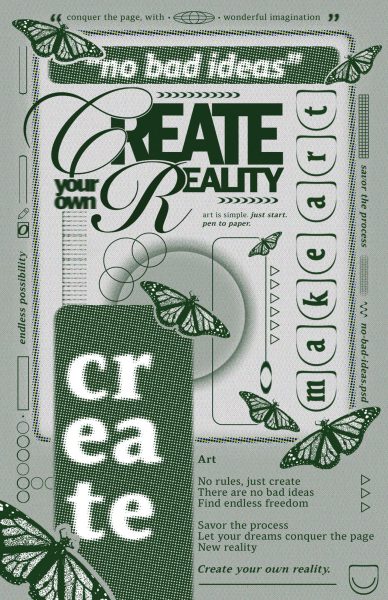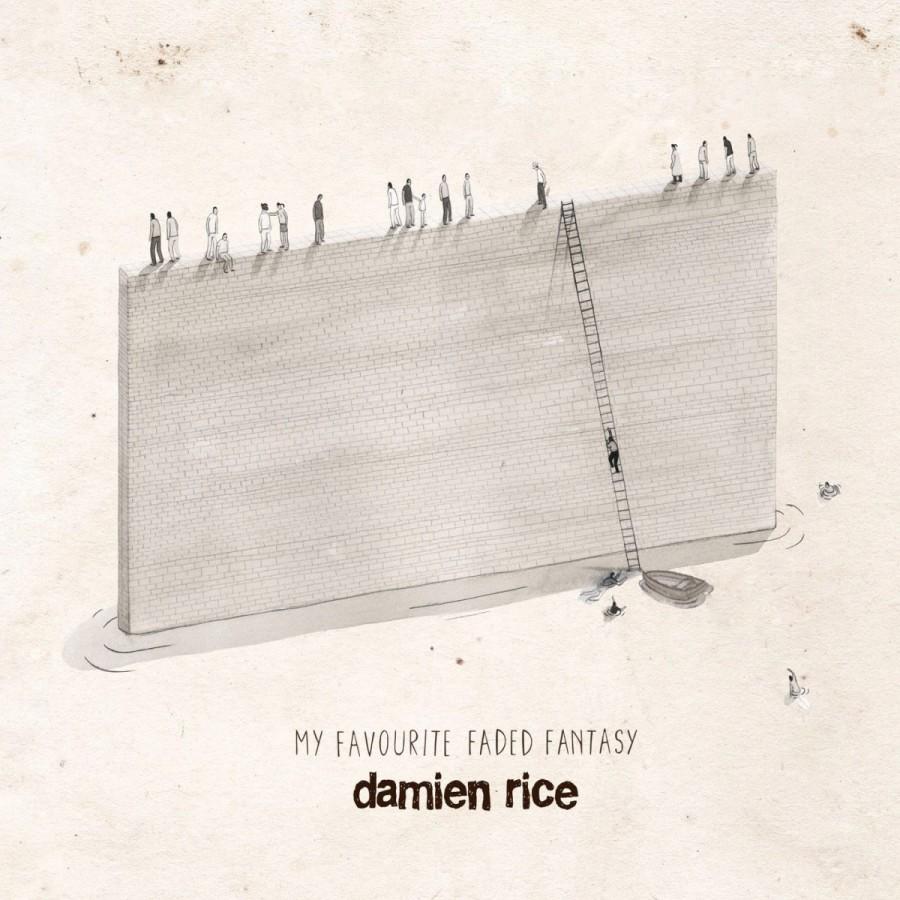Album Review: Damien Rice — My Favorite Faded Fantasy
Damien Rice cascades back into his army of hearts with his first album in eight years
℗ 2014 Damien Rice Music Limited, under exclusive license to Vector Recordings/Warner Bros. Records Inc. in the U.S. and Canada.
The Irish singer-songwriter Damien Rice has been performing since the mid ’90s when he formed the indie-rock outfit Juniper, but it wasn’t until 2003 when he broke through with O; a beautifully subdued, acoustic record that holds a special place in the hearts of many. There, his talent was kept secret among members of the underground music scene until the song “The Blower’s Daughter” became noticed after used in the 2004 film Closer. Subsequent to this success, Rice became too successful for the small joints full of devoted, sparse fans and became the most dreaded thing for a fan of underground music: mainstream. The lovely charm of Rice was unleashed upon the masses, and he followed this success with 2006’s 9; an album that, once again, spotlighted Rice’s tremendous talent, but failed to be as momentous and renowned as O. Since 2006, fan’s have been forced to draw their own conclusions on their favorite honey-eyed songwriter. Where did he go? Did he stop writing music altogether? Will he ever release another record?
Luckily, only eight years later, Damien Rice has cascaded back into the hearts of the masses with My Favorite Faded Fantasy; the followup to 9. But the nagging thought that this LP will once again fail to live up to O sits in the back of everyone’s mind who’s been eagerly anticipating this record. After all, achieving the sentimental prosperity of songs like “The Blower’s Daughter”, “Delicate”, and “Amie” is a difficult endeavor. Nonetheless, My Faded Favorite Fantasy is the irish musician’s most crucial release since O and will likely have listeners new and old falling in love once again with the delicate yearning of Rice’s tongue.
My Favorite Faded Fantasy is not a stylistic step forward for Rice, although the LP does feature a grandiose sense of maturity. Many of these songs thrive on a much larger scale than the bare-bones, simplistic nature of O. “It Takes A Lot To Know A Man” is a sprawling nine minute track that spans nearly every instrument in the book — Cascading orchestration, lullaby-ridden piano, sharp, malleable percussion, along with Rice’s hushed strumming. Holistically, the song feels grandeur and instrumentally calculated, often isolating the string quartet or the piano to work their magic and offer a sort of interlude. There’s only vocals in around half the songs, and though the instrumental fade out often rings as lengthy and bloated, Rice manages to utilize a stark arsenal of poignant wisdom and emotional charisma in the first half of the song.
Other tracks like “The Greatest Bastard” retreat to Rice’s simple charm that he prioritized on O. “The Greatest Bastard” is, quite clearly, the most well written and composed song Rice has ever released. Through affectionately heart-wrenching lyricism and organic acoustics, this song shimmers from beginning to end as it places a string quartet and lucid piano strikes in the sections where Rice’s pleading reaches a tear-jerking point. Rice counter-balances beckoning questions along with tender wisdom, delicately cooing in the second verse “Am I just dreaming once again?/Some dreams are better when they end” and suggesting “Letting go is not the same as pushing someone else away” in the third. This song is compelling enough to make you miss someone you’ve never met; moving enough to make you recollect the goriest details of a relationship, and it’s this emotional weight that has the song shining through the dark and casting light upon the sharpest and most clad version of romance.
Other songs like “Colour Me In” also dive into the simplistic charm of Rice’s quintessential grace. The track spans an elegant, finger-picked chord progression and flawlessly placed orchestration and piano riffs. If anything, the song feels like an extension to “The Greatest Bastard”, sweeping forward with an emotional aesthetic of equal magnitude but this time with a shelf of vivid, clever lyrics — “The Greatest Bastard” relying on wisdom and affectionate recollection, whereas “Colour Me In” spouts sweetened lines like “I tried to erase it/But the ink bled right through/Almost drove myself crazy/When these words led to you” and compares living a life of solitude to a “dog-less bone”. “The Box” is a song similar to these two, but instead of framing itself around the sweet nature of romance, it first delves into a reasonable explanation for walking away, but later falls into a fit of passionate aggression.
“Trusty and True” has a storybook-esque string quartet that sends the choruses spinning into fairytales as Rice’s voice soars on about freedom and starting over. The somewhat lengthy song, clocking in at eight minutes, spirals into a warm, thematic, and hopeful breakdown followed by a soft acoustic instrumental to close up the track, and oddly enough “Long Long Way” still follows; a song that closes the LP on an even higher note. On “Long Long Way”, Rice’s voice is reduced to a hushed falsetto as this predominantly ambient song soars over a heartfelt glockenspiel, fluttering orchestration, and luminous background vocals that all join forces to fade out My Favorite Faded Fantasy.
My Favorite Faded Fantasy is a beautifully composed, compassionate record that lives up to the success of O and expands upon it. Without a doubt, this is Damien Rice’s finest album to date and a must hear, for it could squeeze suppressed emotion out of the most realistic and non-sentimental individual out there. Without a doubt.
Score: A
My Favorite Faded Fantasy is out everywhere now.


































